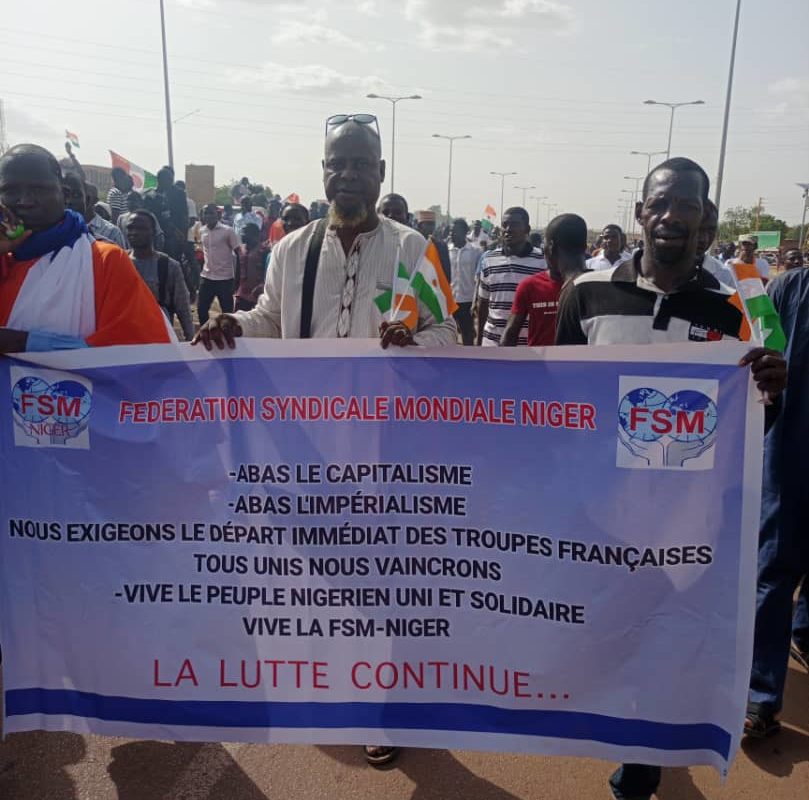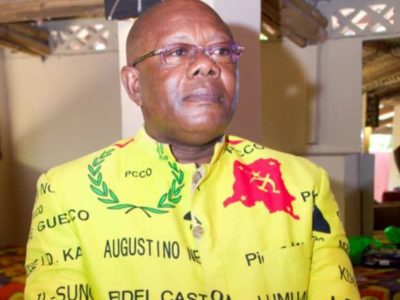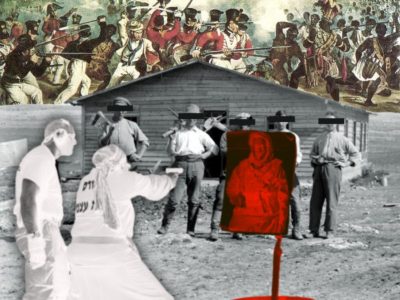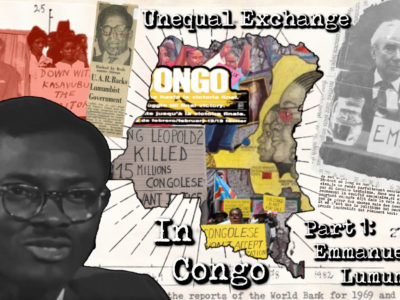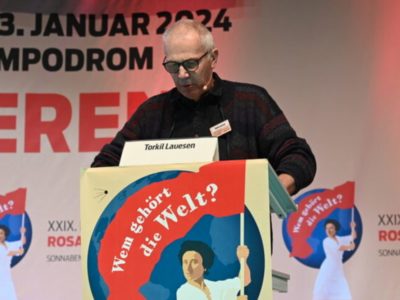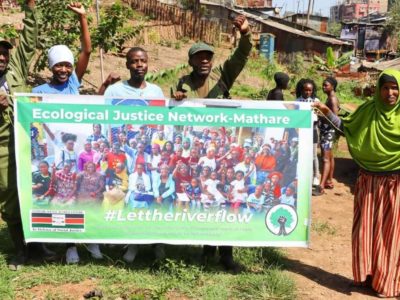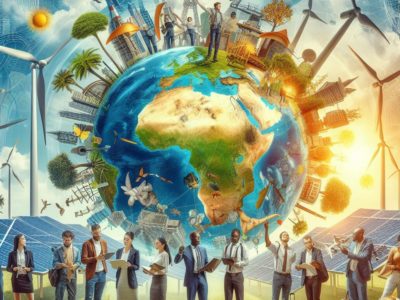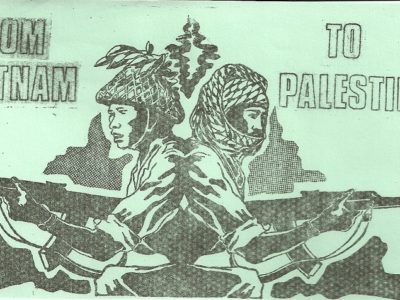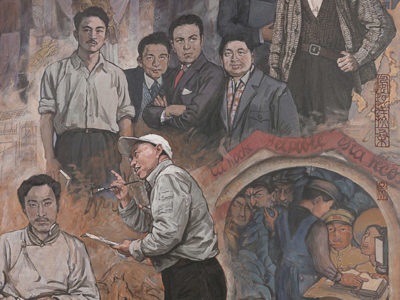by Joseph Mullen and Immanuel Ness
Nigerien independence on 3 August 1960 was largely a performative exercise by local leaders seeking economic and political power without interest in genuine national self-determination as the country has been wholly dependent upon exports to France for foreign exchange. Even after France adopted the Euro in 1999, the CFA franc remained the exchange currency of West Africa and the Sahel.
Post-independent Niger has been occupied by French and US troops, ostensibly to protect the country from jihadists who had emerged in the aftermath of NATO’s annihilation of Libya, which had been a prosperous country under the leadership of Muammar Ghaddafi from 1969 to 2012, when he was ritually killed by jihadist forces unleashed by the West. In the aftermath of the chaos induced by the West, Salafists have extended their influence into the Sahel, centring on Mali, Burkina Faso, and Niger, and as an extension, the US and France used as an excuse to expand their military presence. French, German, and US military bases have been stationed throughout the Sahel, until the French militias were expelled by the anti-imperialist governments that formed following the military putsches.
Since independence, the collective West has maintained political control through imposing civilian and military puppet governments. Upon independence, first president of Mali, Modibo Keïta, a socialist striving for non-alignment between East and West was toppled in a Western-sponsored military coup in 1968, an object lesson for leaders seeking to carry out an independent course from the West and adopt socialist policies that would contribute to improved living standards and authentic liberation from the West. In 1983, Thomas Sankara was elected prime minister of Upper Volta but saw that the country was fully dominated by the West, which imposed IMF debt on wasteful projects preventing desperately essential human needs. Recognizing that independence was ostensibly nothing more than a form of neo-colonialism with the veneer of autonomy, Sankara sought to advance a Marxist-Leninist road to development. In 1983, he was overthrown but retook power in a revolutionary coup d’état that established a socialist state free of Western dominance, privileging land reform, health care, and literacy and ending Western schemes to pillage the country. Under the banner of Marxism-Leninism Sankara shifted the state from a semi-colony of France to a genuinely independent country devoted to the collective needs of rural and urban workers. Sankara renamed the country Burkina Faso, and established socialism based on Marxist-Leninist principles of economic independence, participatory democracy, women’s rights, ecology, and promoting local culture. Under Sankara’s leadership, Burkina Faso adopted the successful socialist practices of Cuba, emphasizing local needs over foreign economic domination. Under a socialist Burkina Faso, eradicating communicable disease, promoting health, expanding access to running water, housing, and education, and national, non-capitalist development, through advancing anti-imperialist socialist policies.
Socialist Burkina Faso posed no threat to the West but challenged French dominance over the Sahel through presenting an effective alternative model of socialism. In October 1987, Sankara was overthrown and killed in a French and American sponsored coup d’état leading to 30 years of autocratic rule until 2022, when two coup d’états were launched against the government. The second coup d’état on September 30, 2022, by Ibrahim Traoré, challenged French imperialism and the government’s ineptitude in quelling a jihadist insurgency that threatened civilians throughout the country.
Following the end of the Cold War, from the 1990 to the present, the US imposed a Western rules-based order (RBO) requiring superficial electoral democracies in the region and throughout the world. Elected officials required the imprimatur of the United States and its neoliberal allies in Europe and beyond. Formal Western-style democracy in the Third World and in the Sahel is nothing more than selecting candidates for national office who are willing to maintain the system of debt peonage and unequal exchange privileging rich countries and undermining authentic development that would improve the lives of most who were struggling every day to survive. NGOs proliferated to impose the RBO upon states throughout Africa, essentially reinforcing imperial rule of the West.
In 2011, NATO, led by the US and France, orchestrated a national insurrection in Libya, a prosperous but independent state, through encouraging a national insurrection and backing it with a massive Nato bombing campaign destroying most of the country’s infrastructure and economy. Muammar Gaddafi, Libya’s leader who used the country’s petroleum wealth to develop the country, was assassinated by Nato-backed rebels in October 2011, shortly after he called for an African currency.
Over more than a decade from 2012, Salafism spread from Libya to the Sahel region and was accompanied by jihadism that intensified the suffering of the people of the region. With no options, Salafists gained support among those seeking to profit from the insurgencies which did nothing more than maintain the status quo of violence and insecurity for most inhabitants in Mali, Burkina Faso, and Niger. To confront the Salafist movements, national governments devoted significantly larger funding to expand skeletal armed forces to check the jihadist violence, in turn expanding the size of the military in each of the three countries of the Sahel. In view of the stultifying conditions of poverty, inequality, and violence, principled leaders of the armed forces in each country (Burkina Faso, Mali, and Niger) staged coups to defeat the rampant spread of jihadism which French troops stationed in the region did not oppose. The new military governments were all determined to end more than 60 years of French post-colonial occupation and economic imperialism.
Following successful coup d’état in Mali and Burkina Faso, Niger, the largest landlocked country in Africa, mired in poverty and more than a decade of jihadist insurgency, was still viewed by the French and US as a reliable ‘democratic’ ally under the government of nominally elected Mohamed Bazoum, a western pawn whose primary function was not to serve the Nigerien people, but to ensure the cheap extraction of natural resources, notably the country’s extensive reserves of uranium, which France depends on to power its nuclear energy grid. Confident that the Nigerien comprador government was secure, the West was surprised when, on July 26, 2023, the president’s military guard, underAbdourahamane Tchiani, leader of the National Council for the Safeguard of the Homeland seized power, and poised to conquer the jihadists and replicate the popular military governments in Mali and Burkina Faso. The three Sahelian countries have formed an alliance, Association of States of the Sahel (AES). The Coalition for Ending Imperialism in Africa, an international organization, viewed the military interventions in each state as a positive development. Certainly, each government encountered distinctive challenges, but all were determined to both quell the jihadist uprisings and end French military presence.
Popular support for the new Nigerien governments encouraged local civil society organizations to demand socialist policies that would benefit the masses in rural and urban areas, especially the socialist WFTU affiliate, which has advanced improving education and providing the population with the bare necessities of life: potable water, electricity, health care, housing, education, and essential infrastructure.
The revolution of workers in Niger becomes all the more necessary when one considers the continued effects of imperialism in that country. In 1995, Gernot Köhler estimated that the volume of Unequal Exchange (the loss of value due to unequal remuneration of exchanged commodities due to disparities in wages between two countries) caused a loss of roughly 33% of the value of Niger’s GDP[1]. Using Köhler’s formula to derive Unequal Exchange (T = d*X – X, whereind = the exchange rate deviation index, X = the volume of exports from a low- or middle-income country to high-income countries, and T = the unrecorded transfer of value resulting from unequal exchange), we can estimate the losses for Niger today:
| From Trade With: | France + U.S.A. | Whole Global North |
| Losses to Niger from Unequal Exchange (2022) | -$214 million | -$382 million |
Part of this valuation is derived from the gross discrepancies in wages and standards of living for the citizens of the Sahel as compared to those of the West. As Frantz Fanon presciently wrote, “Europe is literally the creation of the Third World. The wealth which smothers her is that which was stolen from the underdeveloped peoples”. Niger’s uranium is not its only valuable resource; its labor, and the devalued labor-power of the Third World, are sources of energy that have powered the development of the First World far longer than Niger’s uranium, which today is 25% responsible for keeping the lights on in Europe. With minimum wages as low as $50 a month[2] ($6000 a year), it is no surprise that the volume of Unequal Exchange is so high. Here we can compare the GDP-PPP[3] for the three nations (Niger’s figures are roughly equivalent to the rest of the Sahel):
| Country | Niger | France | U.S.A. |
| GDP Per Capita/ Purchasing Power Parity (in $) | 590.63 | 43,658.98 | 70,248.63 |
We believe that the workers of Niger, along with those in Burkina Faso and Mali, living in some of the most exploited nations in the world today, are at the vanguard of a global struggle to end Unequal Exchange, neo-colonialism, and underdevelopment, and to move towards socialism on a global scale. It is in the interest of supporting their revolutions that we offer the interview below, in the hope that these revolutionary workers of Niger may speak for themselves, and that we may offer in exchange our solidarity for their struggle.
Interview with Hamadou Ibrahim, Secretary General of the Union of Free Trade Unions of Niger (USLT/N), WFTU
On December 8, 2023, Anti-Imperialist Network interviewed Hamadou Ibrahim, Secretary General of the Union of Free Trade Unions of Niger (USLT/N) and the Federation Syndicale de L’Enseignement (FISE), Federation of Education Unions, an affiliate of the World Federation of Trade Unions (WFTU), a socialist international confederation seeking an independent path from the Western dominated International Trade Union Confederation (ITUC). After the July 2023, coup d’état, ITUC denounced the military intervention in a country that has facilitated the extraction of national resources from Niger. Yet, interestingly, even ITUC and its African affiliates opposed the intervention of ECOWAS, a threat that advanced by France and the USA, who could not garner any support for their demand for intervention, nor were they willing to intervene, even as both countries maintained military bases in the country.
Q: Mr. Ibrahim, would you please tell us a bit more about the name of your union and how it formed, as well as which industries your members are in?
Ibrahim: Yes. I’m very happy. Very, very glad to get you on this conference with the WFTU. I’m very happy because we are struggling together, and we have the same ideology in our trade union confederation. Our trade union confederation, its name is USLTN. In French, it is Union des Syndicat Libres des Travailleurs de Niger. In French we call it centrale syndicale, Central Syndical Confederation of Trade Unions, free trade unions, workers of Niger. In English, the free trade union of Niger workers.
Q: OK, very good. So when did your Union, when was it founded and how did it originate? What year and which sectors of society?
Ibrahim: We are in the trade union of CESI with Confédération des travailleurs du Niger. And we are also affiliated with the Federation International Syndicale de L’Enseignement (FISE). And after the 2nd—
Q: So you represent teachers.
Ibrahim: Yes, I am a teacher. As I’m a teacher, we are affiliated for the first time with Confédération des travailleurs du Niger who is affiliated to CESI. And we had a problem of ideology. And we created USLT, and we are affiliated to the WFTU as an anti-imperialist struggle. And we see that the ideology that we can do is not the same in the same branch, so we created our USLT, and it is affiliated to the WFTU.
Q: Thank you, Mr. Ibrahim. Can you tell us when the USLT began?
Ibrahim:
Yes, in 2012.
Q: That’s very interesting. Do you think this represents a new trend where unions in Africa and other countries, poor countries, are choosing the World Federation of Trade Unions over the capitalist International Confederation of Trade Unions?
Ibrahim: Yes. So I can make a parenthesis according to that, I said we have been affiliated to CNT and after we have affiliated with the WFTU and in the WFTU, we joined the FISE. The FISE is the International Federation of Teachers, in French the Fédération Internationale de L’Enseignement. I have been to the Congress of FISE at Mexico City. And Mariano has been elected. The 2nd Congress has passed in India and because of lack of transport, I have not had the luck to go to India, but as I have been the English French translator for the Senegalese delegates, they elected me as a member of FISE at the Congress of India.
Q: Very good. That’s great. Go ahead.
Ibrahim: We are very glad to be in the WFTU. It’s because of that, I say today I’m very happy to discuss with the General Secretary of USA and of the WFTU. I’m very happy. Surely I’m very glad. Because of the struggle that we are making, I will give you all the declarations that we have done before the coup d’état. And we are not being well seen by the other people, the FISE members. We had a problem in Geneva, because money representation of WFTU is not allowed because of the imperialist system. So we have to get money from many places. And the United Nations in Geneva, that we lost. We lost it because of this system, because they don’t want us to improve in an international way. But we keep struggling, as George Mavrikos (WFTU Secretary General) told us: we have to be strong, we have to get ready to be united and fight against this imperialist system.
Q: So the unity and of FISE and the World Federation of Trade Unions… you have the full support of the World Federation of Trade Unions?
Ibrahim: Yes. We have been to the Congresses. We have been to the Congress of the WFTU, which has been in Roma in Italia. And I present one of my comrades from Niger, Issaka Abdou, to be elected and he has been elected to the International Commission of the Presidential Administration in the WFTU.
Q: How has the new government treated the WFTU and FISE in Niger? And how has the new government helped advance the interests of your union?
Ibrahim:
Very good question. Because when we had the coup d’état, when we went to the presidents… when we met the Presidents, we said, “far, far away we are struggling.” At the end of the Second World War, there was the first international organization, which was the WFTU, and now they have come to accompany us in a revolution. Because we have been for such a long time in this ideology, and because of this coup d’état, which we see as a liberation, there is freedom for us to denounce the eleven secret accords between Niger and France. So it is the military forces of Niger who have accompanied us because we are always fighting. But this fighting has not been very well done because of the imperialist system. We got the CESI, the trade union who didn’t allow us to make our activities. So now it is a kind of a freedom in Niger, and they are going to collapse together with Mali and Burkina Faso in the Sahel. There is Mali, who has come out from the G5 Sahel, and this last week, they made a declaration that Niger and Burkina Faso also come out from the G5 Sahel. This is the destruction of the G5 Sahel, so it’s a kind of revolution. Even ECOWAS is a system of imperialism which maintains us in poverty, which maintains our exchange of money in the same system of imperialism. So many populations, many people understood that situation. It’s because of that, in spite of religious people, Christians in Niger, Muslims… civil society, trade unionists, workers, independent association… non-governmental organizations… together, they join together and say no to imperialism. In our last debate, I said it’s not all kinds of organizations which can come to make a debate and denounce the system of imperialism. Now we get many people, even the trade unions of CESI says we are together now. And the people of the country have to join together and make a unity to fight against this system in order to liberate our countries.
Q: Thank you, Comrade Ibrahim. I’d like to ask about how the revolution that is ongoing in Niger is anti-imperialist and is an attempt to take back the pilfered resources that have been stolen from Niger, such as uranium by France, and how these resources will be recovered from the imperialists?
Ibrahim:
Yes, very good question because we have been maintained in poverty. And in poverty, sometimes some people are not following our ideology. We have the problem to make this unity together. But the problem that they made for our people, our country, is this problem of inhumane sanctions that ECOWAS has put on us. This system made more poverty for our country: problem of electricity, problem of money. We can’t get money. They did another system before the coup d’état: the control of workers. Many of the workers, their salaries have been cut. For example I have been in the group of the people who have been cut for three months without salaries. Because they needed biometric data. At that time I had been in Latin America and in order to repair it, the Ministry of Education called me to make a disposition to the trade union. I salute this ministry in order to resolve this situation. Our people are in extreme poverty. We are living from hand to mouth. We are living from hand to mouth. It’s because of that, one of our organizations, my deputy of the WFTU in Niger, they got a meeting, a sit-in in front of UEMOA (Union Economique et Monétaire Ouest Africaine). So they say they want to force UEMOA to give the money that they don’t allow Niger to get. …
And this revolution is also going to transform the currencies of our three countries—Niger, Burkina Faso, and Mali into one rather than maintaining the Central African Franc—we need to be free. So most people are asking the new government to form our own currency, if we have our own strong currency, we can liberate ourselves. But if we stay along in the same system of the safer, we have to be in a bad situation, in the same situation of neo-colonialism. It’s because of that we say, why not can we not think about our own money? A strong money. So we are thinking… people are thinking on this and also people are thinking about agriculture, people are thinking about the transport—the train, the planes. This is kind of the future. It’s small by small, time by time we will reach our objectives and that’s how the economy is thinking about how to pull our three countries in all this situation. Therefore, if you succeed, we want to succeed. And as you who are getting this coalition for us… … so we can go to the pan-Africanists. We can make united states, the Unity of Africa. We are very happy to be with you because of your solidarity. This creation of the coalition is a way of humanism. So we make a big congratulation for our people from Canada, our people from United States, our people from South Africa. There are many people who get the same idea of WFTU. One of our people who are making this kind of sensitizing, who are talking about books — those authors like Thomas Sankara, those authors like Malcolm X — so many authors who have the same ideology to liberate people, to liberate workers. So workers have to join together. Workers must get the same objective in order to beat imperialism.
Q: Thank you very much, Mr. Ibrahim, we’re very much interested in solidarity, too, since we are also a part of FISE here in New York. We work very closely with FISE, and we look forward to meeting and working together. I think the question we have is that through unity of Burkina, Mali, Niger, and maybe Guinea, it seems like you have the beginning of a stronger capacity to resist the French imperialist project so that they won’t steal the resources and the labor of people in the region. So you’re unifying within the Sahel region through the revolutions that have taken place in each of the countries. Is this a way to resist the French imperialism?
Ibrahim: Yes, Sir. That’s a very interesting thing, but not easy. Because in our population there are some people who don’t follow our ideology 100%. Some people are like valets of France. They don’t understand. They always want to be in the same situation because of their leadership, because of their own advantages. For example, in one area of our country, like the western side, if you are in a group of Niger, other groups, if you say this is a plan which has destroyed terrorists, they will give you a red card like they give to the football player who makes a mistake. They take it like a mistake. So there are people who get this in mind, they get bad ideas about soldiers, about militaries. And if they say they killed soldiers, terrorists killed soldiers, they are very glad. So they want to make this destruction, this disorder in order to get their own leadership, their own advantage. Some people are not understanding at all, so we are sensitizing the people who have not understood. It’s not an easy job for us. But we congratulate you and the others who support us, because in this particular situation, you see people are hungry. Niger is a poor country and ECOWAS has put this injustice on us, who are not part of ECOWAS. They put something unfair on Niger and last week they said that ECOWAS has about $1.9 million for the countries of Niger, Burkina Faso, and Mali. We said no, it will not repair this injustice. We have to repair this unfairness that they have done to Niger. We don’t take this kind of money to ensure insecurity. This is an insult for us. We can’t accept this kind of present. What ECOWAS has done for Niger, Mali, Burkina Faso is inhuman. Electricity: now you give me the call, now I transferred the call to the other phone that gets the connection because of electricity. Because of this bad connection, we don’t get electricity. We don’t get the rice, the food. And even in the bank, we can’t get our own money. People who get money in the bank cannot get it out like they want. So they put bad issues on us, inhumane issues and now they want to repair. So it’s very difficult to understand. From this kind of doing, people cannot get the confidence for them to be the same Africa, the same unity in the world. That cannot be done because we understand and we know that ECOWAS is just a soldier of France, who is doing the work ECOWAS is doing. Some people of our country go to ECOWAS’s side and France’s side and say they can bombard, they can give bombs to the military forces in order to destroy Niger. So this kind of thinking, we see that this is not human. So what we get in mind and what we can never forget is this kind of coalition that are people from America. I said to the military, it is not all the American people who we are against, no, and it is not all the Senegal people who we are against. We get the Congress of Women of the WFTU, and we say we don’t get the money to go there, we get the two women who have to go to the Congress of Senegal in Dakar, and we go to the presidents, we tell them. They say Senegal is not our good partner. I said no, it’s not Senegal, we get WFTU in Senegal and we get the Congress of Women in Senegal, and we have to go there, and we will denounce the imperialist system in Senegal. That’s why we want to go to the Congress. Unfortunately, we have not gotten the luck to go because of the border, because of this measure of ECOWAS. So that is the situation we are in. Critical situation. And we get strength, because we get the ideology like WFTU, we get the ideology like you who created this coalition according to the coup d’état and you are helping us financially, ideologically and psychologically, we get the strength. Because today I have not even eaten my food. I lost my food today, but today I’m very strong. I’m very happy to get you. When you announced to me that there is a WFTU comrade who wants to be at the conference, I’m very glad because I have this ideology in my mind, and I will fight for this ideology. I will fight this imperialism with the League of Canada, the League of Australia, the League of France. Even in France you get people who are fighting against imperialism. I explain it to the presidents. I say it’s not Senegal that we are going to help, but we are going to help our people, the people who are suffering, the working class who are suffering. So that’s our struggle, that’s our ideology, to fight against these imperialists, and together with you, with your solidarity, we know that we will win. I get this strength and today is like a deep link for me to get energy to continue the struggle. And tomorrow I will be between the people who will do the sit-in front of the UEMOA. Because my deputy coalition has a sit in there tomorrow, and I will send you the image. And the man from UEMOA is from Benin. My deputy said Ibrahim, you have to come because it is our right. We have to get our money from UEMOA. It is an unfair measure that they put on Niger, and we will struggle, and we will show to the national and international people what happened.
Q: Yes, thank you, comrade. I’d like to ask about the need to charge higher prices for uranium as in France currently and all the Western countries, there’s a very low price for uranium and other resources that Niger has that are mined. Can you speak on this a bit?
Ibrahim: We have to diversify. We have to diversify. We have to diversify our partners. If we get Canada, who can buy the uranium, we will sell to Canada. If you get America, who says a good price, we will sell to America. If we get Iran, who says you will get a good price for us, we will sell. The time in which France says it is the master to set the price is finished. Now we are free. It’s because of that, if you say that Mexico can buy the uranium, we can sell it. If Cuba says it will buy the uranium, we will sell. If Russia says it will buy the uranium, we will sell it. I want to give you a small anecdote about the situation of uranium. When we went to Geneva, to the International Conference of Workers, one of France’s workers, who is in a trade union. He asked me, what is the problem? I say our problem is a problem of injustice, social injustice. We make a professional election which has been done in a bad way, and we need the worker side of the ILO to help us in order to repair this unjust system. He said, we will help you, but pay attention. Don’t make yourself like the Malian people who are trapped internationally. I said, OK, it’s very good, but we also are afraid because now people are sensitized. If tomorrow we say that we will sell our uranium to who we want, what will be your behavior? What will be the behavior of France? I just come one month after they do the coup d’état, after the ILO conference. All the people in the world, every country, people are sensitizing, people are seeing that they get rights. So it’s just giving the rights to the people. People get the resources. Natural resources. And people have to get the benefit of these resources. And if you get decent partners who will say that, OK, we have to raise the price of uranium, they are welcome. And we will renew the price of uranium. Even if you get this system of nuclear energy, Nigeria cannot punish us on the electricity, you see. So if we get our own electricity, we cannot be punished by Nigeria. And the punishment is not inside the ECOWAS system. We get the contract of Nigeria on the electricity. But they cut the electricity. We are in the dark. It’s because of that, if you say we get the conference, we get problems. We say maybe that the connection will be bad, so just now the connection has been very low when the professor is calling me. All of this is the consequence. They punish us in unfair ways. And our uranium? Right now, we will get new partners and we will set our prices according to international prices.
Q: Thank you very much for that answer, I think it’s very, very important because the government that was overthrown by the popular forces was benefiting personally from the uranium and was not charging high enough prices that would improve people’s ability to buy food to have electricity, water and so forth. So that’s a good point and I’m wondering if you could tell us how you, as a member of the World Federation of Trade Unions, will work with the other WFTU unions throughout the world, for instance India? And other countries, Pakistan, Syria, Egypt, and more. Are you planning on working with them to try to advance your Union’s interests? And one other point I’d like to make is that I don’t think we should call this a coup d’état. I think we should call this a revolutionary movement.
Ibrahim: Revolution. That’s right. Because if you have critical thinking about this, the people who have made it are the same people of this government. And this revolution has been done. And this is a revolution, as you said, that’s right. The problem here is that we are not getting all the benefits from our own country. The governors, the leaders, make financial embezzlement for their own family, for their own people, their own leaders. So we need a new situation to rectify the different financial embezzlements that have been done. We have to get this reparation of the injustice, social injustice, we call it because if there is no justice in a country it will be very difficult to develop. If people get in the mind that you get financial embezzlement then you don’t mind about your own people. But we have to change our own minds. Because if a people are always doing embezzlement, financial embezzlement, they put people who are not able to work in the place because of this particular familiarity that you have with your cousin, the friend. So it’s not like this that a country can be ruled. We have to change our mentality. It’s not only the system of France that we have to condemn. Ourselves, we have problems. When I see major people who say ECOWAS, you have to punish Niger. You have your mother in Niger, your wife in Niger, your grandfather in Niger. Your village is in Niger. And you want ECOWAS to punish Niger and make an intervention in Niger because of what? Because of France. Because of what? Because of your own interests. You prefer your own interest more than that of your people. That’s the meaning of imperialism. So we are against this system. And we are very glad for WFTU who have this ideology and who are making this sensitizing throughout the world. George Mavrikos says you have to get strength. You have to fight. We get that relationship cooperation with Palestine, we get relationship with Iran, we get the relationship of Russia, we get the relationship with United States, we get the relationship of South Africa, all the countries who have the ideology of WFTU, we get the same ideology. For example, I have been in Roma for the Congress. And I have been also in South Africa for the WFTU Congress, the 17th Congress, the 18th Congress I have in Roma in Italia and the FISE Congress, I have done it in Mexico City. So in all the world, the WFTU is an international organization. Whether people like the truth, whether they don’t like the truth, they have to follow the truth, because the truth is the truth. We have to fight for our people. We have to fight for our rights, and we have to get critical thinking and say no to imperialism.
Q: How does the legacy of Thomas Sankara, the great leader of Burkina Faso, influence your Union and the people of Niger and the Sahel?
Ibrahim: Yes, we have the ideology of Thomas Sankara. And we work also with one leader of the Thomas Sankara Center in Burkina Faso. We are connecting together, and we are making a relationship, a bilateral cooperation between Niger, Mali and Burkina Faso. Because we get leaders from Mali, who affiliated on the WFTU. We make this common relationship in order to struggle together in the same mood, in the same ideology. As you say, this is not an affair in a good time. This is a revolution. Whether people like it or not, our partners had to change. They must change their behavior and policies. Because now, people get the rice to look to what is good for them, what is not good for them. And we have to be together at the same table and discuss sincerely how to develop our different countries without ECOWAS. If I want to get your ideology, if I want to get your knowledge, I have to respect you. I have to listen to you. I have to see the example that you are telling me to do. In the amphitheater of university, if I’m your student, if you say no, this professor, his behavior is not good for me, I don’t like how he is behaving. You never get his knowledge. I have to respect you to see what you like, what you don’t like in order to go together and to get each other’s benefit. If not, it will be impossible to have this union together. As I said to the military, no, we want to go to Senegal, not for the President of Senegal. We want to go to Senegal to denounce what ECOWAS is doing to us. If we go to the Congress, our two delegates to the Congress, two women… If they go, I said they will denounce the inhuman misery. And they will make international declarations during the Congress, and it will have an effect on the population of countries of ECOWAS and France and all the world, they will understand that what France is doing, the women are denouncing the system.
Sincerely, Professor, I’m very happy today. I’m hungry. My stomach is hungry, but psychologically I’m satisfied. I’m satisfied I get the strength to continue more than that. Because what you are doing for us is like sensitizing. Like I said at our international conference with the Thomas Sankara Center, my colleagues who are selling the books of Malcolm X and Martin Luther King… for the revolution. You are the soldiers who are selling books, who are making sensitizing. And people are getting interesting more and more and they are making a sensitizing and people will get this kind of revolution. So many associations of this kind of organization, we get the same idea, ideology, and we go together, and we make a coalition together.
Q: That’s our plan. It’s very concerning that there is a food shortage in Niger… as you know it’s caused by France and ECOWAS, to try to undermine the revolution. And it’s very important for finding alternative sources of food that will be able to sustain the revolution and the people.
Ibrahim: That’s very, very interesting. Because right now. The situation that we are facing is a kind of project, this revolution. If we fulfill our objectives. It will be better for all Africa, for all the world. People like you who get your own knowledge your critical thinking, and who know the reality of things. And who are sensitizing, who maintain themselves in the coalition in order to help our members. We are very, very happy to get people like you in our groups. Because as I say, we met some Communist from Australia, some communists from the United States, some League of Socialists in Mexico. So in all over the world WFTU is working. And I’m very glad to be with you. Because if we get to fulfill this objective, Togo can come to this coalition. Even today, the President of Niger has gone to Togo. And Chad and Mauritania, according to the G5 Sahel, they said it’s destroyed. A group of five, which becomes 4, 3, 2. This means it is the decline of the G5 Sahel. Is not because we left the G5 Sahel that we cannot make a unification of Africa. We have to get Pan Africanism in our mind and get this ideology. It is not because the President of Nigeria cut the electricity [of Niger] that we are against the people of Nigeria.
The port of Benin is having problems because the border with Niger is closed. It is not only our country, but our people also who are suffering: all of West Africa is suffering. Nigeria. People are suffering because of the reaction of ECOWAS to our coup d’état. As you say, it is a revolution. This is a revolution. We started it and we want things to be done better in the future. If ECOWAS people see their bad ways, and come to us in a better mood, we can discuss. We are all human. To err is to be human. But with the same system, the money will always be in France. And France controls and exploits all our divisions. That, people understand. And they said no, they cannot accept this. People opened their minds, and they say they have to join together. Mali, Burkina Faso, Niger, they have to join together. Make the same system of agriculture, the same system of transport. Diversify the partnerships.
We can work with China, we can work with India, we can work with the United States. In the United States, if people like you are inside the government, we will say the United States is welcome. We don’t have a problem. But if you have the same ideology as France, we will have a problem with the United States. If other countries have the same ideology as France, we will get problems. So like human beings, we have to get our rights for our people. We have natural resources in our country. The people have to benefit. The people have to get schools in their areas. The people have to get food to eat. The people have to get wells to drink water. France makes bases in our country, but doesn’t know how to make wells for the people to drink water. This is a “To be or not to be” situation that imperialism is putting in our minds, and we say no. We have to make a change. This is the revolution. Take the professor: he gets his research and from the research, and from the student, the professor is also gaining some experiences. So we are together, like humans, I say.
We have to say no to this bad system of imperialism. We have to change. We have to change our behavior. We have to change because people see now right now what they are and what they have. So people are not blind. And we are with you, people who help us to get open minded, critical thinking about the situation we are in. We thank you very much for humanism. For solidarity. We are very, very glad to be with you and it’s not the first time that I share with people like you. I see many, many people like you, who understood the ideology of the WFTU. I can’t talk in a debate without mentioning the ideology of the WFTU because I see that is the first international organization who has been after the World War, the Second World War, the first one who had the strength to say no to capitalism, to say no to imperialism, which maintain our people in poverty, in critical situations, in problems of war, in problems of terrorism, in problems of insecurity, and make the sans-papiers [without papers, undocumented in France].
[1] For this data and Köhler’s formula: https://wsarch.ucr.edu/archive/papers/kohler/kohler3.htm
[2] https://wageindicator.org/salary/minimum-wage/niger
[3] https://data.worldbank.org/indicator/NY.GDP.PCAP.CD?locations=NE

